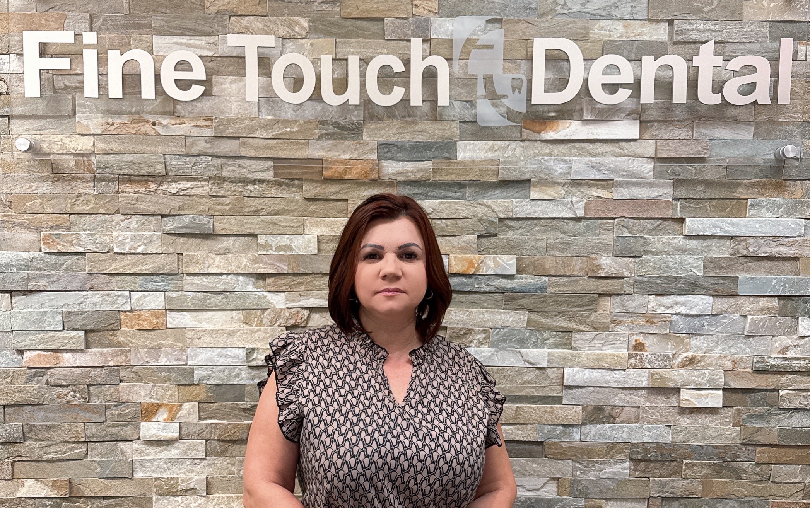If you are afraid of visiting a dentist and, like me, delay the appointment until the last moment, this interview is for you. After speaking with Marina Guseva, the coordinator at Fine Touch Dental, I realized that fear can be overcome.
Marina, let’s tell our readers where your clinic is located and what it specializes in.
Fine Touch Dental (701 Howe Ave b34, Sacramento, CA 95825) provides almost all dental services: diagnostics, crowns, prosthetics, all types of cleanings, and extractions of any complexity. We have been in the market for more than ten years (since June 2014).
Clinics operate differently, and sometimes doctors are available only a few days a week. What is your clinic’s schedule? Is it convenient for patients?
We are open daily, Monday through Friday, from 9:00 AM to 6:00 PM. Patients see one doctor with whom they communicate directly. Previously, Dr. Sergey Mahtesyan worked here, but since 2019, Dr. Stephen Barnes has been treating patients.
Additionally, we do everything possible to accommodate emergency cases on the same day a problem arises. Even if, for some reason, we cannot provide immediate assistance, the specialist will still prescribe the necessary medication, including pain relief, so the patient does not suffer while waiting for their appointment. We don’t work on weekends, but if a patient has surgery on Friday, both the doctor and I provide our personal phone numbers just in case. We treat our patients as if they were family.
Fine Touch Dental (701 Howe Ave b34, Sacramento, CA 95825) provides almost all dental services: diagnostics, crowns, prosthetics, all types of cleanings, and extractions of any complexity. We have been in the market for more than ten years (since June 2014).
Clinics operate differently, and sometimes doctors are available only a few days a week. What is your clinic’s schedule? Is it convenient for patients?
We are open daily, Monday through Friday, from 9:00 AM to 6:00 PM. Patients see one doctor with whom they communicate directly. Previously, Dr. Sergey Mahtesyan worked here, but since 2019, Dr. Stephen Barnes has been treating patients.
Additionally, we do everything possible to accommodate emergency cases on the same day a problem arises. Even if, for some reason, we cannot provide immediate assistance, the specialist will still prescribe the necessary medication, including pain relief, so the patient does not suffer while waiting for their appointment. We don’t work on weekends, but if a patient has surgery on Friday, both the doctor and I provide our personal phone numbers just in case. We treat our patients as if they were family.
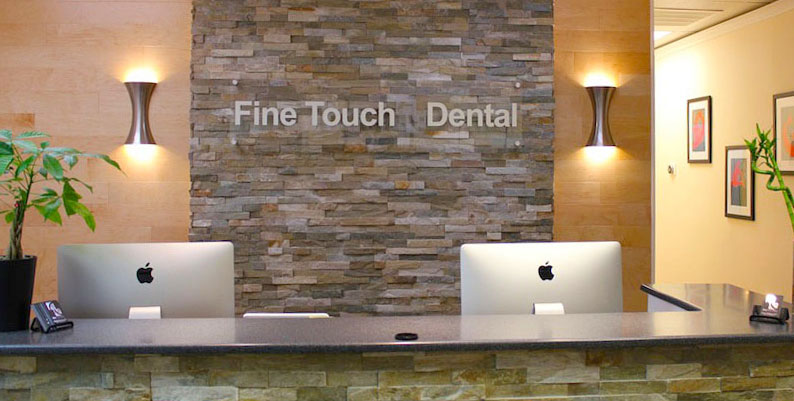
How much does a consultation cost?
Consultations at our clinic are free of charge. Since we specialize in implants, we also have all the necessary diagnostic equipment: regular X-rays, panoramic X-rays, etc.
Now we come to a more painful topic than even a toothache—prices. How much does it cost? For example, an implant installation.
The average cost without insurance, including extraction, bone grafting, the implant itself, and the crown after 3-4 months, is about $2,500–$2,600.
What insurance plans do you accept?
We work with all PPO (Preferred Provider Organization) insurance plans and are currently in the process of accepting all Liberty plans. Some we already accept, while others are still being processed. We do not accept HMO or Medical Insurance.
Consultations at our clinic are free of charge. Since we specialize in implants, we also have all the necessary diagnostic equipment: regular X-rays, panoramic X-rays, etc.
Now we come to a more painful topic than even a toothache—prices. How much does it cost? For example, an implant installation.
The average cost without insurance, including extraction, bone grafting, the implant itself, and the crown after 3-4 months, is about $2,500–$2,600.
What insurance plans do you accept?
We work with all PPO (Preferred Provider Organization) insurance plans and are currently in the process of accepting all Liberty plans. Some we already accept, while others are still being processed. We do not accept HMO or Medical Insurance.
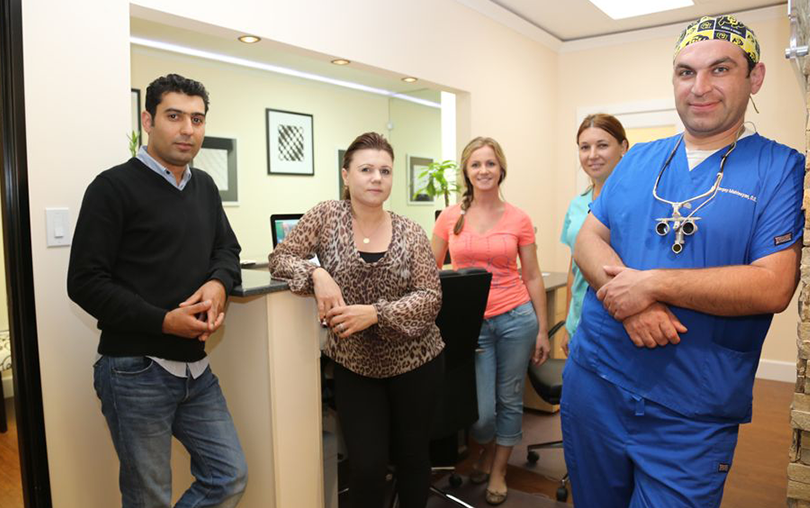
What percentage of costs does insurance usually cover?
Every case is highly individual. For example, Liberty doesn’t cover implants or bone grafting. It may only cover implants if the patient has physical or mental disabilities, and even then, it’s a lengthy process involving documentation. Not all PPO plans cover implants or crowns either. Depending on the plan, savings can range from 40% to 100%.
When a new patient comes to us, we always ask if they have insurance that we work with. I calculate the costs in advance so that I can present all the numbers to the patient at the time of their procedure, complete with printed estimates. I always advocate for the patient. For instance, if someone comes in mid-year and needs an implant and crown but only has $1,500 left on their insurance for the year, I might say: “You’ve gone this long without that tooth; maybe wait until October or November to place the implant, and then in January, when your new annual maximum starts, we can do the crown. This way, you’ll save significantly.”
Is there an option for installment payments?
Payment is typically due on the day of the procedure, but we work with SCHIP (State Children’s Health Insurance Program) and Cherry financing. With these credit options, the patient can choose how long to stretch out the payments.
Every case is highly individual. For example, Liberty doesn’t cover implants or bone grafting. It may only cover implants if the patient has physical or mental disabilities, and even then, it’s a lengthy process involving documentation. Not all PPO plans cover implants or crowns either. Depending on the plan, savings can range from 40% to 100%.
When a new patient comes to us, we always ask if they have insurance that we work with. I calculate the costs in advance so that I can present all the numbers to the patient at the time of their procedure, complete with printed estimates. I always advocate for the patient. For instance, if someone comes in mid-year and needs an implant and crown but only has $1,500 left on their insurance for the year, I might say: “You’ve gone this long without that tooth; maybe wait until October or November to place the implant, and then in January, when your new annual maximum starts, we can do the crown. This way, you’ll save significantly.”
Is there an option for installment payments?
Payment is typically due on the day of the procedure, but we work with SCHIP (State Children’s Health Insurance Program) and Cherry financing. With these credit options, the patient can choose how long to stretch out the payments.

In former Soviet countries, crowns are very popular. What’s the difference between a crown and an implant?
A crown is placed on your existing tooth when you have a large filling or a root canal. An implant, on the other hand, is placed where a tooth used to be but is now missing. It is screwed into the bone, which is then built up, stitched over, and allowed to stabilize for 3-4 months. Afterward, it’s also topped with a crown. We also offer bridges, removable dentures, and other solutions.
Many people avoid dentists because of fear of pain. What types of anesthesia do you offer, and do you provide general anesthesia?
We don’t do general anesthesia; it’s a complex and not entirely safe procedure. Instead, we prescribe 2-3 tablets for the patient to take the night before their visit and then additional pain relief about 30 minutes before the procedure. In this state, you can hear everything happening, but it feels like you’re in “La La Land” (laughs). Here, I’m not just a coordinator; I’m 80% a psychologist because people come with different experiences, including complicated cases. I’ve always been empathetic toward people’s fears, but after sitting in the dentist’s chair myself, I have an even deeper understanding. I do my best to prepare and calm patients so they feel as comfortable as possible.
A crown is placed on your existing tooth when you have a large filling or a root canal. An implant, on the other hand, is placed where a tooth used to be but is now missing. It is screwed into the bone, which is then built up, stitched over, and allowed to stabilize for 3-4 months. Afterward, it’s also topped with a crown. We also offer bridges, removable dentures, and other solutions.
Many people avoid dentists because of fear of pain. What types of anesthesia do you offer, and do you provide general anesthesia?
We don’t do general anesthesia; it’s a complex and not entirely safe procedure. Instead, we prescribe 2-3 tablets for the patient to take the night before their visit and then additional pain relief about 30 minutes before the procedure. In this state, you can hear everything happening, but it feels like you’re in “La La Land” (laughs). Here, I’m not just a coordinator; I’m 80% a psychologist because people come with different experiences, including complicated cases. I’ve always been empathetic toward people’s fears, but after sitting in the dentist’s chair myself, I have an even deeper understanding. I do my best to prepare and calm patients so they feel as comfortable as possible.
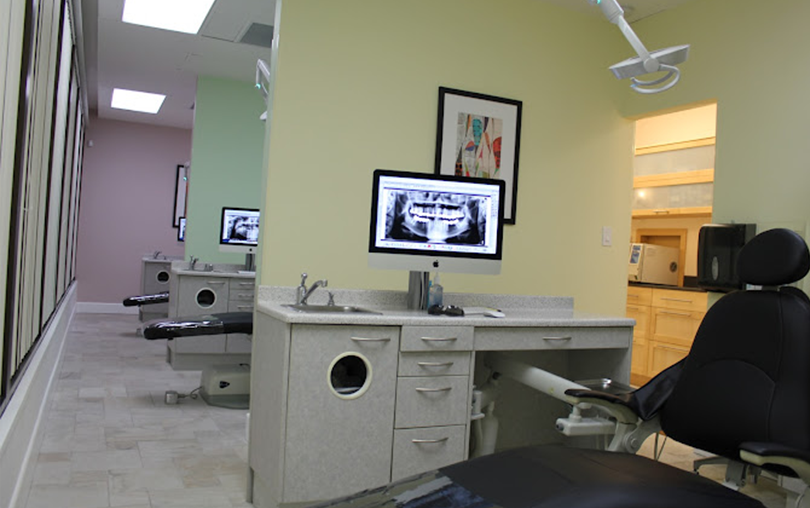
How long does a typical visit last? Can patients plan their schedule around it?
The initial consultation lasts about an hour. Of course, everyone’s situation is different. Some people only need a cleaning, which is quick, but more specialized procedures can take an hour and a half or longer.
The initial consultation lasts about an hour. Of course, everyone’s situation is different. Some people only need a cleaning, which is quick, but more specialized procedures can take an hour and a half or longer.
Can patients reach out to you afterward if they have questions?
They absolutely should. When you come in for a consultation, I explain everything, and you should never hesitate to ask questions. Even if you get home and forget something, you can always call us. If necessary, you can come back, and I’ll show you the X-rays and explain everything again. There are no unimportant questions—it’s your health.
I also always warn patients not to rely on Google, friends, or relatives for medical advice. Everyone’s body, structure, and diet are different, and many factors can influence recovery after procedures. Just because a friend didn’t experience something doesn’t mean you won’t, and vice versa. If you have doubts, it’s better to call or drop by for 5-10 minutes to check and reassure yourself that everything is fine. I’ve been in dentistry since 2001, so I know what to expect and what is unlikely. If there are any lingering concerns, come back the next day and let the doctor take another look for your peace of mind.
They absolutely should. When you come in for a consultation, I explain everything, and you should never hesitate to ask questions. Even if you get home and forget something, you can always call us. If necessary, you can come back, and I’ll show you the X-rays and explain everything again. There are no unimportant questions—it’s your health.
I also always warn patients not to rely on Google, friends, or relatives for medical advice. Everyone’s body, structure, and diet are different, and many factors can influence recovery after procedures. Just because a friend didn’t experience something doesn’t mean you won’t, and vice versa. If you have doubts, it’s better to call or drop by for 5-10 minutes to check and reassure yourself that everything is fine. I’ve been in dentistry since 2001, so I know what to expect and what is unlikely. If there are any lingering concerns, come back the next day and let the doctor take another look for your peace of mind.
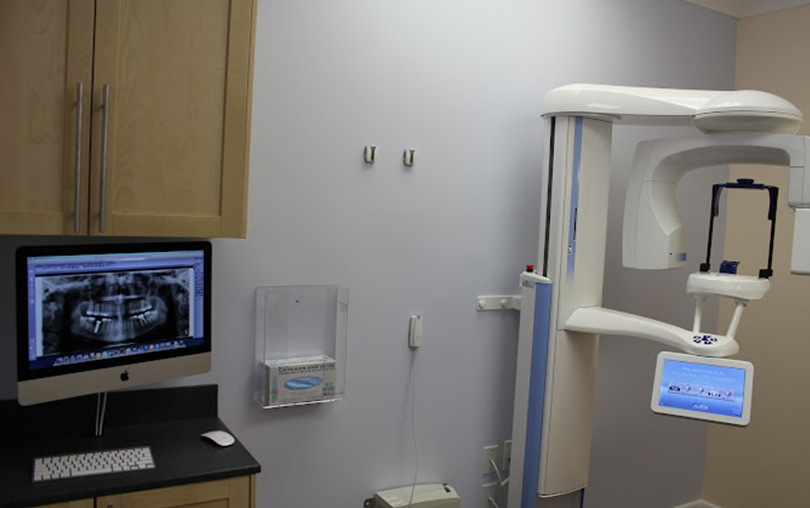
In Europe, people often prefer German or Israeli implants. What type does your clinic use, and what’s the difference?
Technology is so advanced now that the manufacturer’s origin doesn’t really matter. Implant success rates are at 98% across the board. Each doctor has their own preferences, and they recommend what they like best. We have Israeli, Korean, German, and American implants. However, sometimes a specific implant might not suit a patient—for example, if the bone isn’t very dense or due to other individual factors.
Technology is so advanced now that the manufacturer’s origin doesn’t really matter. Implant success rates are at 98% across the board. Each doctor has their own preferences, and they recommend what they like best. We have Israeli, Korean, German, and American implants. However, sometimes a specific implant might not suit a patient—for example, if the bone isn’t very dense or due to other individual factors.
Can people with allergies have implants?
All implants are titanium, and the risk of allergic reactions is minimal. Problems usually arise when patients don’t follow instructions. Otherwise, rejection rates are extremely low.
How often do you recommend getting implants?
Extracting a tooth should always be the last resort; it should be preserved as long as possible. No implant can fully replace a natural tooth, and you’ll need time to adjust to having a foreign object in your mouth. However, if it’s just one or two implants with crowns, there’s usually no significant adjustment period. Once the crown is placed, you’ll be able to eat normally, but it does require more meticulous care. Hygiene is very important.
All implants are titanium, and the risk of allergic reactions is minimal. Problems usually arise when patients don’t follow instructions. Otherwise, rejection rates are extremely low.
How often do you recommend getting implants?
Extracting a tooth should always be the last resort; it should be preserved as long as possible. No implant can fully replace a natural tooth, and you’ll need time to adjust to having a foreign object in your mouth. However, if it’s just one or two implants with crowns, there’s usually no significant adjustment period. Once the crown is placed, you’ll be able to eat normally, but it does require more meticulous care. Hygiene is very important.
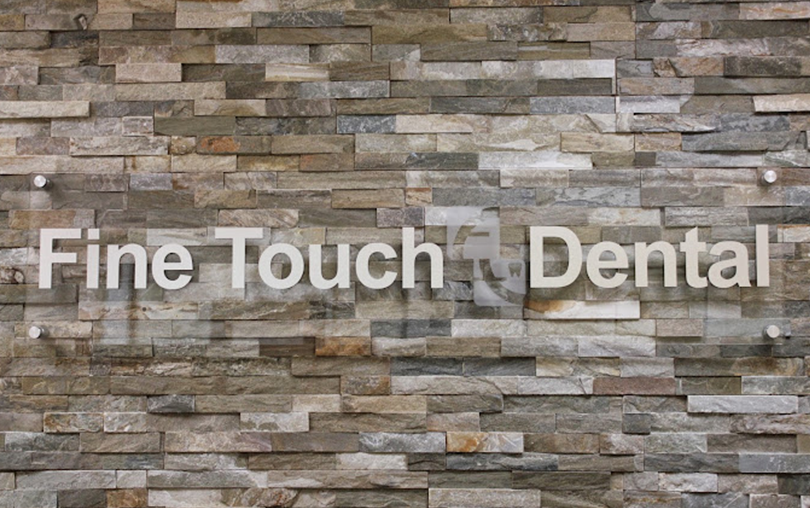
Do you offer any guarantees on dental work?
We provide a three-year warranty on crowns in case of breakage, though this is extremely rare. However, no one can predict what will happen to the tooth itself. It’s a bit of a gamble, as each body reacts differently. Some patients in their 70s or 80s have only a few fillings, while others under 40 have had all their root canals redone. If an implant causes issues like an infection shortly after placement, we clean everything up, but that falls under the treatment process rather than the warranty.
How often should people get their teeth checked?
Visit the dentist every six months for a cleaning. The doctor can always spot potential problems early, and it’s much easier to address them with a simple filling than wait until the tooth starts to hurt. We see patients aged 13 and up, with no upper age limit.
We provide a three-year warranty on crowns in case of breakage, though this is extremely rare. However, no one can predict what will happen to the tooth itself. It’s a bit of a gamble, as each body reacts differently. Some patients in their 70s or 80s have only a few fillings, while others under 40 have had all their root canals redone. If an implant causes issues like an infection shortly after placement, we clean everything up, but that falls under the treatment process rather than the warranty.
How often should people get their teeth checked?
Visit the dentist every six months for a cleaning. The doctor can always spot potential problems early, and it’s much easier to address them with a simple filling than wait until the tooth starts to hurt. We see patients aged 13 and up, with no upper age limit.







